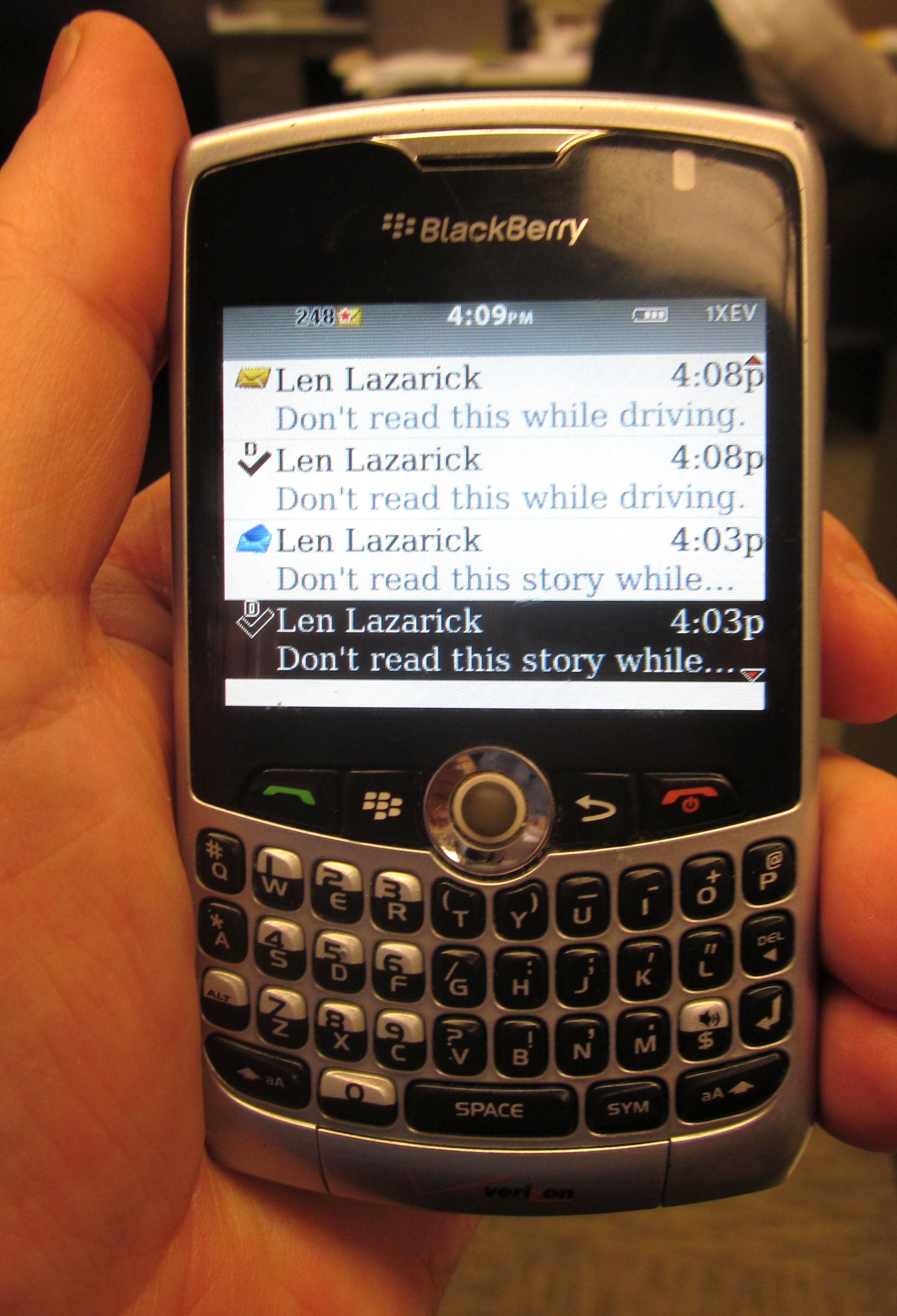By Megan Poinski
[email protected]
 The Senate debate over whether people should be able to read their text messages while driving escalated Wednesday morning into a discussion of distracted driving of all types, what drivers can do in emergencies, and a backhanded affirmation of newspapers.
The Senate debate over whether people should be able to read their text messages while driving escalated Wednesday morning into a discussion of distracted driving of all types, what drivers can do in emergencies, and a backhanded affirmation of newspapers.
The bill in question, proposed by Sen. James Brochin, a Baltimore County Democrat, would make it illegal to read a text message while in the travel lane of a roadway. It is already illegal for a driver to write a text message, and Brochin said the bill would just be cleaning up the law. Drawing from research done to support the bill, he said that the average person reading a text message has his or her eyes off the road while driving the equivalent of four football fields, and is distracted on the same level as someone whose blood-alcohol level is .16, twice the legal limit.
Sen. E.J. Pipkin, an Eastern Shore Republican, objected that reading a text message while driving is already covered by the law prohibiting negligent driving. There are several things that people can do while driving that will keep them from paying close attention to the road – like eating, reaching in the back seat for a CD, or putting on makeup. He also said that allowing police officers to pull people over for texting while driving gives more of a reason for certain drivers to be targeted.
Brochin said the bill wasn’t about other forms of distracted driving. It wasn’t about police officers pulling drivers over. It wasn’t about negligent driving in general. It was simply about reading text messages while driving.
“This is just a way to clarify the law,” Brochin said. Young people going through driver’s education classes should be taught that it is against the law to text while driving, period. He said he wouldn’t want his daughter thinking it’s OK to read her text messages while behind the wheel.
Recalling last year’s blizzard that left thousands of drivers stranded on the state’s highways for hours, several senators asked if this law would make it illegal to send text messages to people explaining where they are in that sort of situation. Brochin replied that under current law, sending text messages at a time like that is already prohibited.
Sen. Delores Kelley, a Baltimore County Democrat, asked if the current law could be amended so that people cited for texting behind the wheel could argue that they were responding to an emergency. Current law allows drivers to use a handheld cell phone or texting device to contact 911, but Kelley said that a situation like the blizzard involved thousands of people. Besides, she said, most people probably wouldn’t want 911 operators calling their families or jobs to say that they’re running late.
Sen. Bobby Zirkin, a Baltimore County Democrat, said he did not think that police officers would go through traffic lanes and ticket thousands of drivers stuck on the roads in a blizzard.
“Under most laws, you can come up with out-of-the-blue hypothetical situations like that,” he said. “I don’t think this one is realistic.”
Sen. James Robey, D-Howard County, is a retired police officer. He took offense to characterizations that law enforcement officers would use the new law to target people. Officers will be able to use their discretion to ascertain whether they believe someone is reading or writing text messages, or just pressing a button on the cell phone to make a hands-free call.
“If we went out there and enforced the black and white of every law we have, shame on us,” Robey said. “That is why we have discretion.”
Sen. Allan Kittleman, R-Howard County, started talking about the different things that can distract drivers, like reading publications behind the wheel or opening a map.
“When I leave today, I hope that someone is not reading the newspaper while driving,” he said, starting on a list of common actions that could distract a driver.
Brochin responded that since Kittleman is likely to leave the State House at night, drivers probably will not be reading the newspaper. However, he said, text messages come through on illuminated screens.
But Kittleman had the last word, proposing an amendment to the bill that would prohibit drivers from reading newspapers behind the wheel. He asked the to hold the bill for further consideration later.




what about adjusting your GPS and getting directions?
What about reading a map? Or someone’s hand-written directions? Or a newspaper – which drivers also will read behind the wheel in gridlocked traffic. Bottom line, you can’t prevent stupid drivers from making stupid decisions with easily-ignored legislation.